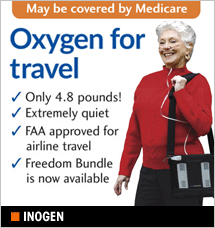Dollar Sense
What Does Medicare Cover when You Travel Outside the United States?

Traveling outside of the United States obviously requires a lot of planning, and even more so for people with health issues. Many seniors who are covered by Medicare don’t realize that once they leave the United States, Medicare coverage is minimal or nonexistent. However, if you are traveling to a U.S. territory, such as the Virgin Islands, Puerto Rico, American Samoa, or the Northern Marian Islands, you are probably covered. Otherwise, don’t make the mistake of relying on Medicare.
So what happens if you do end up needing medical care while outside the country?
If you do fit one of the limited exceptions (listed below) Medicare should kick in, though you will of course, still pay whatever co-pay, coinsurance, or deductible you pay at home.
If you do not fit one of those limited exceptions, you will need to pay the full cost of medical care yourself, unless you have an alternate policy.
Suppose you fit one of the limited exceptions and get treatment in a foreign hospital? Who bills Medicare?
Foreign hospitals are not required to submit claims to Medicare. You’ll have to do that, so be sure to get an itemized list of all charges.
For help with submitting a foreign claim, go to Medicare.gov, and type in “Patient’s Request for Medical Payment,” or call 1-800-MEDICARE (1-800-633-4227).
What Kind of Alternate Coverage Is There?
- Medicare.gov says if you have Medicare Advantage, your plan may provide worldwide coverage. However, it’s never safe to make this assumption. Talk to your plan provider before you go.
- If you have a medigap plan, you may be in good shape. Some medigap plans cover foreign travel emergency care, subject to a lifetime limit of $50,000. Medigap plans C,D,E,F,G,H,I,J,M or N generally pay 80% of the billed charges for certain medically necessary emergency treatments outside of the U.S. under these circumstances: Medicare does not cover the cost or the care or emergency services that begin within the first 60 days of your trip.
If you are shopping for a medigap plan, you should know, Plans E, H, I, and J are no longer being sold, but if you have such a plan (bought before June 1, 2010) you should be fine. To learn more about medigap policies, visit Medicare.gov and type in “medigap.” Or call 1-800-MEDICARE (1-800-633-4227)
Suppose You Have No Other Coverage?
You may need to check into buying a temporary travel health insurance policy, especially if you have health conditions which make you more likely to need medical attention. Check with your travel website or travel agent for this type of policy.
Keep in mind, foreign travel can be rigorous even for healthy individuals. You may be dealing with changes of elevation, climate, water quality, sanitation. If, while traveling, you suffered a condition which required you to be evacuated out of a foreign country for medical reasons, the cost could exceed $50,000, according to the U.S. State Department. And most domestic insurers will not pay that cost, so be sure to ask your insurer.
The State Department also advises individuals with pre-existing conditions to carry a letter from their doctors, describing the condition, the necessary treatment, and the prescription drugs they take (including their generic names).
If you do become in a foreign country and cannot find care or need emergency travel home, contact the American consulate. You will be responsible for the cost, but the consulate will assist with finding the care and making travel arrangements.
Limited Exceptions to the Medicare Rules
Here is what Medicare.gov lists as exceptions under which you might be covered by Medicare.
- You suffer an emergency while in the United States but are closer to a foreign hospital than a domestic hospital. So if you are in the far northern U.S. and are taken to a Canadian hospital which fits the limitations you should be okay.
- You live in the United States but a foreign hospital is closer to your home than a U.S. hospital, whether or not you suffer an emergency.
- If you are on a ship in territorial waters of the United States, Medicare Part B may cover medically necessary health services, but only if the ship is within six hours of a U.S. port. So if you are on a cruise ship off the coast of southeast Canada, you are probably safe. If you are on a cruise ship off the coast of France, you will not be covered.
As you can see, the coverage is slim, and most of the exceptions listed by Medicare.gov actually require you to be within the United States or very near the U.S. That’s pretty limited. The best bet is, do not rely on Medicare.
Here are a couple of other questions and answers directly from Medicare.
Q. What about dialysis?
A. Unless it is an emergency in which you get dialysis at a hospital, Medicare doesn’t cover dialysis when you travel outside the U.S.
Q. Will Medicare cover prescription drugs purchased in another country?
A. The short answer is, no. That’s why before you leave home, Medicare advises you to call your drug plan for more information. Also carry your prescription drugs with you in their original bottles.
Teresa Ambord is a former accountant and Enrolled Agent with the IRS. Now she writes full time from her home, mostly for business, and about family when the inspiration strikes.




























































